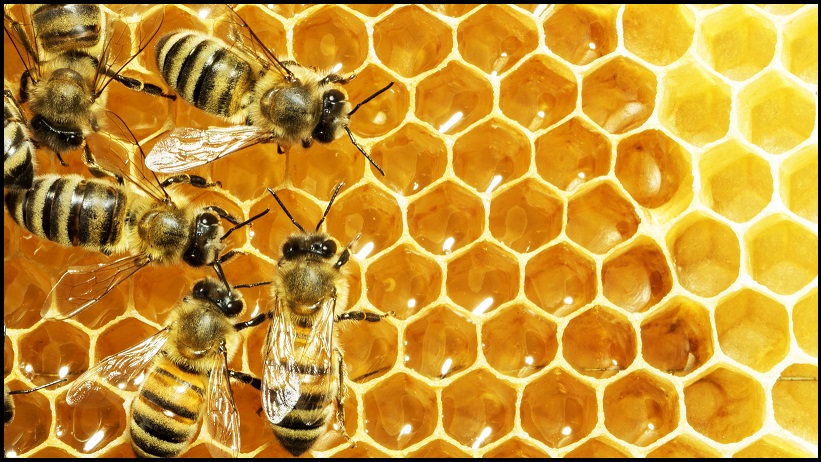By Elizabeth Shumbusho
Tanzania is buzzing with anticipation as it prepares to host World Bee Day 2025 , a vibrant celebration of nature, innovation, and sustainability in the apiculture sector. With optimism and pride, the country reflects on its growing achievements in beekeeping while laying a solid foundation for hosting the Apimondia International Beekeeping Congress in 2027 — a global event that will shine a spotlight on Tanzania’s vast potential in this vital industry.
Scheduled from May 18–20 in the capital city of Dodoma , this year’s World Bee Day will be celebrated under the theme:
“Bee Inspired by Nature to Nourish Us All.”
The event promises to be a platform for knowledge exchange, showcasing sustainable beekeeping practices, promoting biodiversity conservation, and reinforcing the critical role bees play in food security and environmental health.
A Nation Poised for Growth
Despite already ranking 14th globally and second in Africa for honey production, Tanzania remains a sleeping giant in the beekeeping world. The country’s rich natural endowments — including 48.1 million hectares of forest covering over half of its landmass — provide ideal habitats for bees. From mountainous forests to expansive grasslands, Tanzania’s diverse ecosystems offer an unmatched advantage for apiculture development.
Kaizenge David Camara, Deputy Chairperson of the Tanzania Beekeeping Development Organisation (TABEDO) , highlighted the nation’s unique opportunity:
“Tanzania’s varied climates and ecosystems make it one of the most suitable countries for beekeeping. World Bee Day is not just a celebration but a strategic moment to align efforts and elevate our apiculture sector to new heights.”
Collaborative Efforts Driving Progress
Coordinated by TABEDO in partnership with the Ministry of Natural Resources and Tourism , this year’s celebrations will draw thousands of participants from across the public and private sectors, civil society, academia, and international development partners. The event will feature:
Exhibitions showcasing local and international innovations in beekeeping
Stakeholder forums for policy dialogue and investment opportunities
Product marketing zones to promote Tanzanian honey and related products
Technical workshops aimed at training beekeepers in modern, climate-resilient methods
These initiatives are designed to empower local producers, improve productivity, and strengthen linkages between rural beekeepers and global markets.
Economic Impact and Industry Expansion
The beekeeping industry in Tanzania has emerged as a key driver of rural livelihoods, employing over 2 million people nationwide. According to the Tanzania Forest Services (TFS) , the country produced 128,588 tonnes of honey and 861 tonnes of beeswax between 2021 and 2024 , generating over TSh 621 million in export revenue.
This growth has been fueled by collaborative efforts involving government agencies, research institutions like the Tanzania Forestry Research Institute (TAFORI) , and support from international partners. Meanwhile, the private sector has introduced cutting-edge technologies — from improved hive designs to advanced processing techniques — enhancing both yield and product quality.
Beekeepers are now harvesting more than just honey. Products such as bee venom, pollen, propolis, royal jelly, and wax are diversifying income streams and expanding Tanzania’s footprint in the global market. Exports have reached premium markets in Germany, Japan, the U.S., Netherlands, UAE, China , and other African nations, with demand rising for Tanzania’s high-quality, pure honey.
Preparing for Apimondia 2027
As Tanzania sets its sights on hosting the Apimondia International Beekeeping Congress in Arusha in 2027 , World Bee Day 2025 serves as a pivotal milestone in the journey toward global recognition.
Camara emphasized the importance of this preparation phase:
“World Bee Day is a crucial stepping stone toward positioning Tanzania as a global hub for apiculture excellence. We must invest in better hive technology, ensure quality standards, and attract more funding to showcase what we can offer the world in 2027.”
He also called for increased collaboration between the government, financial institutions, and development partners to scale up investments in beekeeping infrastructure, research, and training.
Looking Ahead: Sustainability and Innovation
To ensure long-term success, the focus is shifting toward climate-smart beekeeping practices and ecosystem conservation . Plans include:
Campaigns to promote afforestation in bee reserves
Public awareness drives on pollination and its role in food security
Policy dialogues to create an enabling environment for apiculture growth
With each passing season, Tanzania’s beekeeping community grows stronger, more organized, and increasingly innovative. As the countdown to World Bee Day 2025 begins, the air is filled with excitement — not only from the hum of bees but from a nation poised to take its rightful place among the world’s leaders in honey production, sustainability, and apicultural innovation.
In the words of Camara:
“Beekeeping is not just about bees. It’s about people, nature, and prosperity. Tanzania is ready to lead the way.”
